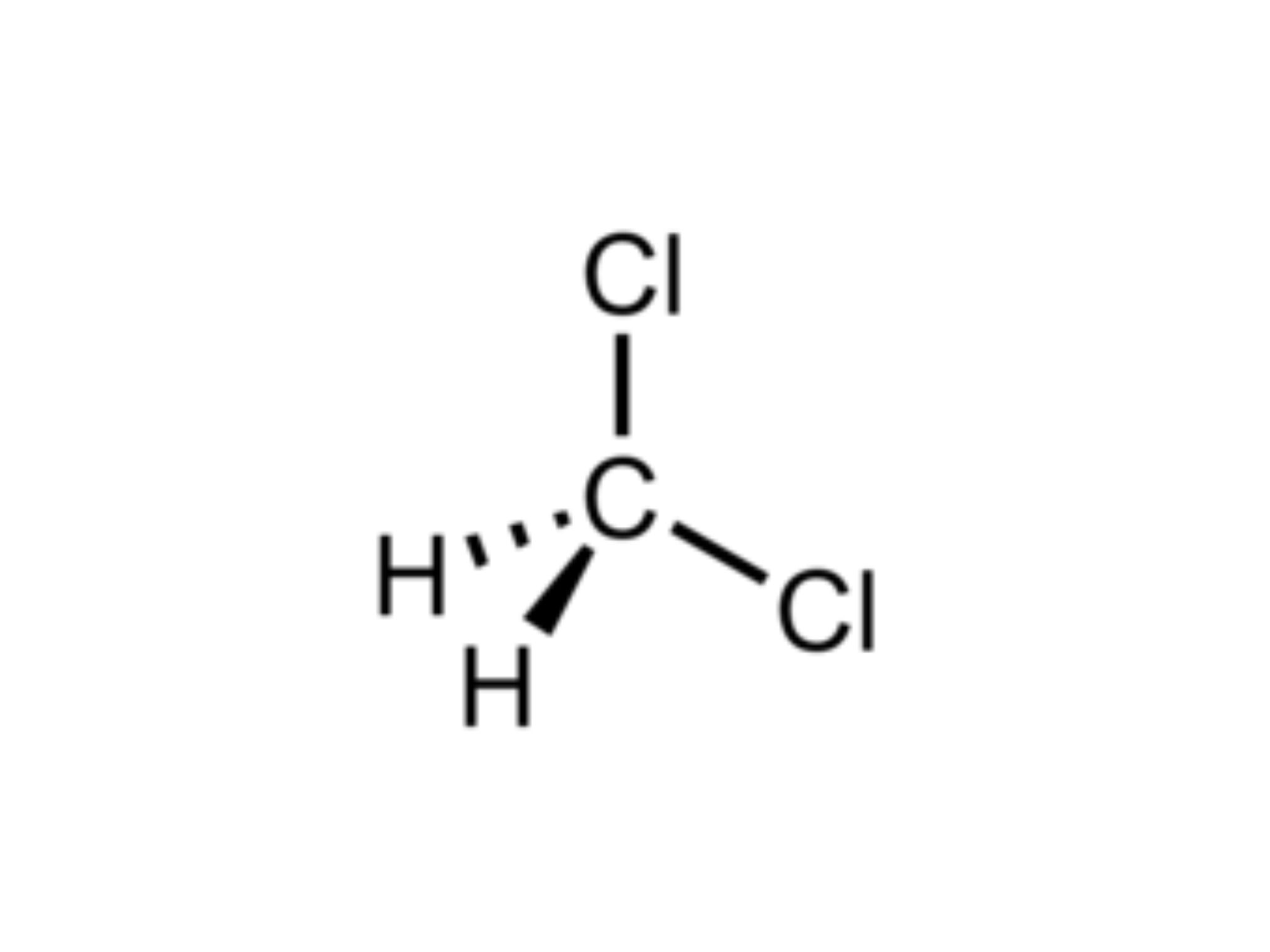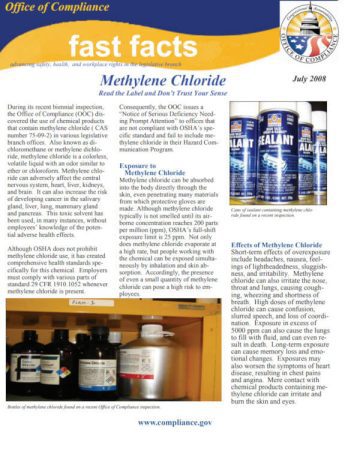During its recent biennial inspection, the Office of Compliance (OOC) discovered the use of chemical products that contain methylene chloride ( CAS number 75-09-2) in various legislative branch offices. Also known as dichloromethane or methylene dichloride, methylene chloride is a colorless, volatile liquid with an odor similar to ether or chloroform. Methylene chloride can adversely affect the central nervous system, heart, liver, kidneys, and brain. It can also increase the risk of developing cancer in the salivary gland, liver, lung, mammary gland and pancreas. This toxic solvent has been used, in many instances, without employees’ knowledge of the potential adverse health effects.
Although OSHA does not prohibit methylene chloride use, it has created comprehensive health standards specifically for this chemical. Employers must comply with various parts of standard 29 CFR 1910.1052 whenever methylene chloride is present.
Consequently, the OOC issues a “Notice of Serious Deficiency Needing Prompt Attention” to offices that are not compliant with OSHA’s specific standard and fail to include methylene chloride in their Hazard Communication Program.
Exposure to Methylene Chloride
Methylene chloride can be absorbed into the body directly through the skin, even penetrating many materials from which protective gloves are made. Although methylene chloride typically is not smelled until its airborne concentration reaches 200 parts per million (ppm), OSHA’s full-shift exposure limit is 25 ppm. Not only does methylene chloride evaporate at a high rate, but people working with the chemical can be exposed simultaneously by inhalation and skin absorption. Accordingly, the presence of even a small quantity of methylene chloride can pose a high risk to employees.
Effects of Methylene Chloride
Short-term effects of overexposure include headaches, nausea, feelings of lightheadedness, sluggishness, and irritability. Methylene chloride can also irritate the nose, throat and lungs, causing coughing, wheezing and shortness of breath. High doses of methylene chloride can cause confusion, slurred speech, and loss of coordination. Exposure in excess of 5000 ppm can also cause the lungs to fill with fluid, and can even result in death. Long-term exposure can cause memory loss and emotional changes. Exposures may also worsen the symptoms of heart disease, resulting in chest pains and angina. Mere contact with chemical products containing methylene chloride can irritate and burn the skin and eyes.

